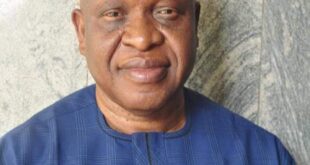In the dynamic world of global funding, the traditional models of grants and the emerging trends in impact investing are key players in addressing social and environmental challenges.
This article explores the evolving landscape of international aid and the implications for developing nations, particularly in Africa, with a special focus on Nigeria’s Niger Delta region.
Historically, developing countries have relied on foreign aid from developed nations to address economic, military, and humanitarian needs.
However, with the global economy contracting and international conflicts escalating, major donor countries have started to reduce aid to developing nations and shift their focus to impact investing.
Data from the Organization for Economic Co-operation and Development’s Development Assistance Committee (OECD-DCA) shows that global aid has grown from $38 billion in 1960 to $210.7 billion in 2022.
However, the financing needed to achieve the UN’s Sustainable Development Goals (SDGs) is estimated to be between $1.4 trillion and $3 trillion annually.
In Nigeria, the development and impact investing landscapes are supported by various funding sources, including government budget, multilateral and bilateral aid, non-governmental organizations, private sector investment, sovereign wealth fund, diaspora remittances, philanthropy, donors, grantmakers, capital markets, and microfinance and SME Funding.
The Niger Delta region, known for its oil and gas production, agriculture, and services, has long been a focal point for development assistance.
Despite its significant contribution to Nigeria’s revenue, the region still faces challenges such as a lack of infrastructure and social inequalities.
Local and international donors and agencies have stepped in to support development initiatives, but their effectiveness is limited by the complex landscape.
To improve the funding landscape in Nigeria and the Niger Delta, reforms to enhance transparency and accountability are needed, as well as efforts to attract private-sector investments.
The call for collaboration and partnership rather than dependence is also gaining momentum, with a shift towards local ownership and involvement in development work.
To better integrate donor funding and impact investing capital in the Niger Delta, institutions with proven models and sustainable concepts should be at the forefront, driving efforts that stand the test of time.
By addressing issues of funding consistency, coordination, accountability, and prioritizing long-term capacity-building, the Niger Delta and Nigeria as a whole can work towards a brighter and more prosperous future.
Subscribe to the Advocate News letter and receive news updates daily in your inbox.
 Advocate.ng Latest news update on politics, entertainment, sport and more
Advocate.ng Latest news update on politics, entertainment, sport and more




